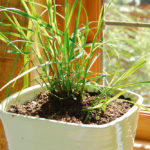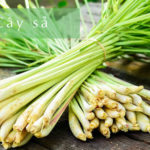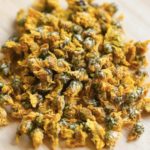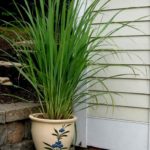Planting trees around the house has a certain effect on snake repellent. Different types of trees will have different characteristics, which may attract or not attract specific snake species. Snake repellent trees usually have the characteristics that snakes cannot crawl comfortably, difficult to make nests in the planted area, or trees with a unpleasant odor.
You can refer to some snake repellent trees. Although these trees do not have an absolute effect in preventing snakes, they also contribute to protecting the family.
Nen Tree
Nen Tree, also known as Allium tuberosum or Chinese chives, belongs to the onion family. This type of tree contains a lot of essential oils in the bulb, with a fresh and spicier smell than regular onions and garlic. Snakes can smell the scent of this tree from a distance, and this scent can repel snakes, making them reluctant to approach.
You can plant Nen Trees in the garden or around the yard, both as a snake repellent and as a cooking spice.
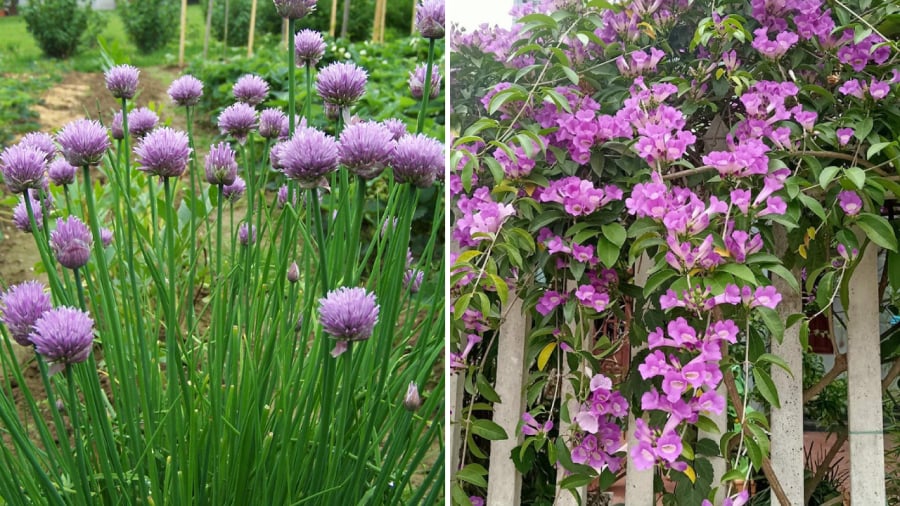
Nen Tree (left) and Garlic Chives (right).
Garlic Chives
Garlic Chives, also known as Chinese chives or Allium odorum, is a climbing plant with purple flowers, often planted around the house. The leaves of this tree have a strong fragrance, even stronger than garlic, so it is called Garlic Chives. The smell of Garlic Chives can keep snakes away.
You can plant Garlic Chives at the gate or along the fence. This method can prevent snakes from approaching and also beautify the house.
Lemongrass
Lemongrass is a familiar plant to everyone. In addition to using lemongrass for cooking, it is believed that lemongrass also has a good effect in repelling insects and snakes. Therefore, people often plant lemongrass in the garden, around the house to repel those creatures that are harmful to human life.
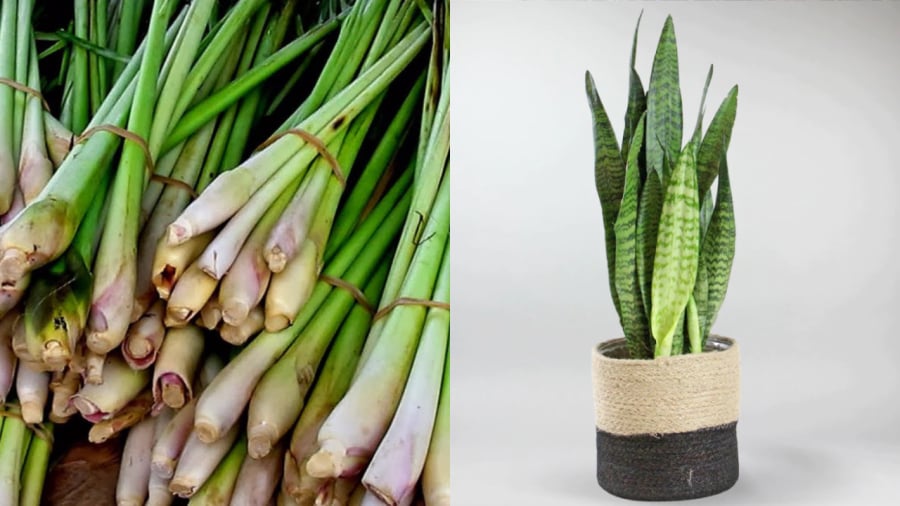
Bromeliads
Bromeliads, also known as Tiger’s Lick, is a popular ornamental plant that many people grow to decorate their homes because it has strong vitality, is easy to care for, and has a good ability to withstand drought.
In addition to purifying the air, Bromeliads also have an effective snake repellent effect. The reason pointed out by experts is that the leaves of Bromeliads have sharp shapes, making snakes reluctant to approach.
Chrysanthemum
Chrysanthemums not only have the function of decorating the house but also have the ability to repel snakes. This flower contains a substance called pyrethrum that has the effect of repelling snakes and insects.
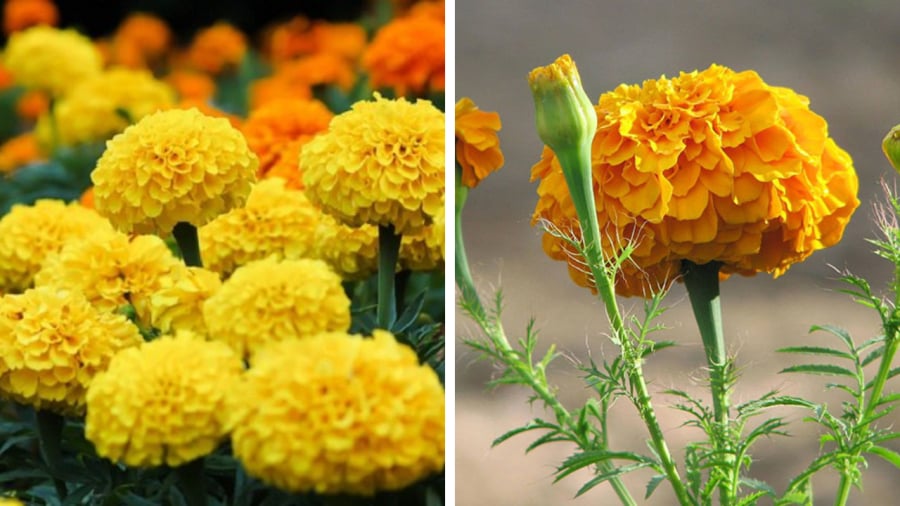
Longevity Chrysanthemum
Longevity Chrysanthemum is a beautiful flower with an unpleasant smell. This type of plant can make snakes uncomfortable and keep them away. You can plant Longevity Chrysanthemum in the garden or around the house to prevent snakes from making nests.
Wormwood
Wormwood is easy to grow, has good growth potential, and has a strong smell. Snakes cannot tolerate the strong smell of Wormwood. They will leave when they smell the scent of Wormwood. Planting Wormwood around the house will prevent snakes from entering your home.
Marigold
Marigolds are not only used for decorating the house but also have the ability to repel snakes. This type of flower contains a substance called perethrum, which has the effect of repelling snakes and insects.
16 Best Houseplants to Keep Mosquitoes Away
Having to deal with pesky insects such as flies and mosquitoes is something that most of us have probably experienced. Not only do these troublesome critters cause unsanitary spaces, they can also spread infectious diseases. While insecticides do the job, why not try something a little different and opt for plants to repel these insects while adding to the aesthetics of your home? Read on to learn more about the following plants that could help.
Lemongrass Oil for Anti-Dandruff Treatment’>Uncovering the Benefits of Using Lemongrass Oil for Anti-Dandruff Treatment
Guide to Restoring Skin with Steam Facial Using Chamomile Flowers
Are you looking for ways to improve the health of your skin? If so, consider giving dried chamomile flowers a try! Not only can they provide relief from dryness and roughness, but they may also help to even out your skin tone. Read on to find out more about the amazing benefits of chamomile flowers!
























